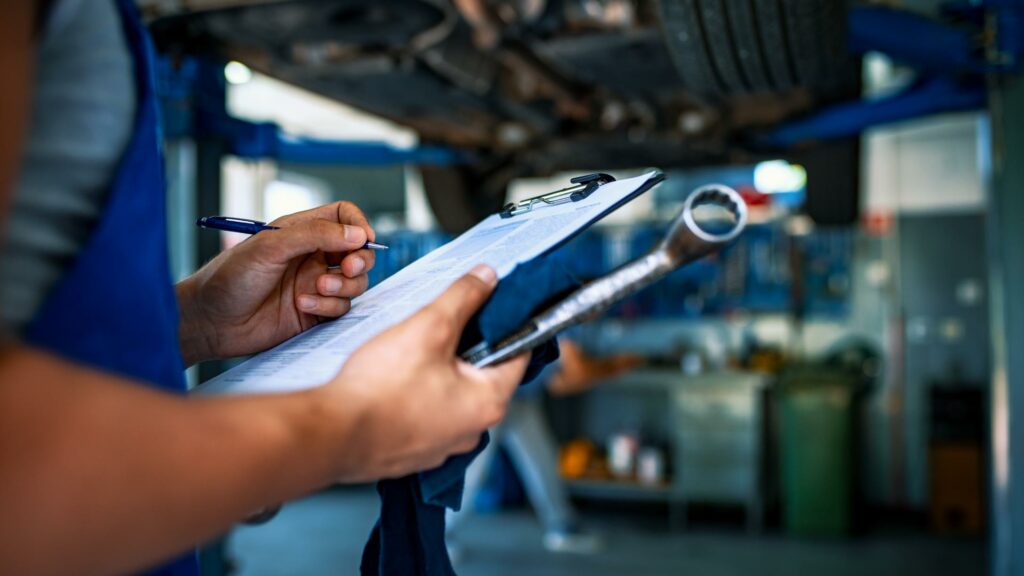
The Definitive Guide: How Often Should You Get Your Car Inspected?
Maintaining a car is an essential part of being a responsible vehicle owner. But how often should you get your car inspected? We’ll look at the factors influencing inspection frequency. Hence, you will have useful information for making choices and maintaining a car in excellent condition.
Understanding the Basics
To determine how often should you get your car inspected, several key factors come into play. That includes the age of your vehicle, manufacturer’s recommendations and local regulations as well as your own driving habits. You can define an inspection schedule that strikes a correct balance of security, maintenance and costeffectiveness when taking into account these factors.
New Vehicles

For brand-new vehicles, the first few years generally require fewer inspections. Modern cars are designed to be more reliable and come with extended maintenance intervals. Typically, manufacturers recommend an initial inspection around the one-year mark or after covering a certain mileage, whichever comes first. Technicians can spot any potential problems that might have developed during the initial break-in period during this initial inspection.
Regular Maintenance Inspections- How often should you get your car inspected
Once your car has passed the initial inspection, regular maintenance inspections become crucial. Regardless of mileage, a thorough check is often advised to be conducted at least once a year. Any problem that does not show up during routine servicing, for example worn out components or potential security risks, is identified by this annual inspection. Such checks involve regular monitoring, assessment and servicing to check whether there are any potential issues, perform preventive maintenance or undertake the necessary repairs. Consider the following important factors when conducting routine maintenance inspections:
- Purpose: The primary purpose of regular maintenance inspections is to proactively monitor and maintain the condition of assets, equipment, or systems.
- Frequency: The frequency of maintenance inspections depends on the type of asset or system being inspected, its age, manufacturer recommendations, and usage patterns. Some inspections may be conducted daily, weekly, monthly, quarterly, annually, or at other specified intervals.
- Documentation: Proper documentation of maintenance inspections is crucial. This includes the recording of inspection dates, findings, repairs carried out and any recommendations for future maintenance. The documentation serves as a historical record and assists in monitoring the health of an asset over time.
- Compliance: Regular maintenance inspections often play a significant role in meeting legal and regulatory compliance requirements.
- Benefits: Regular maintenance inspections offer several benefits. They help to anticipate and address potential problems prior to escalation. This improves the performance of equipment, reduces hardware breakdowns and prolongs the life cycle. Hence, it increases overall safety.
- Maintenance programmes: For organisations which rely on critical equipment and systems, the implementation of a comprehensive maintenance programme including regular checks is essential. These programmes typically provide for maintenance tasks, inspection schedules, responsibilities and resources that are necessary to guarantee effective maintenance practices.

Mileage-Based Inspections
In addition to annual inspections, keeping an eye on mileage is essential. As a general rule of thumb, vehicles should undergo a thorough inspection every 12,000 to 15,000 miles (19,000 to 24,000 kilometers). This interval ensures that critical components like brakes, tires, suspension, and fluids are assessed regularly and replaced as needed. However, do consult your vehicle’s manual for manufacturer-specific recommendations, as some cars may have shorter or longer intervals.
Special Considerations
Certain circumstances may warrant more frequent inspections. If you frequently drive in harsh conditions, such as extreme temperatures, dusty environments, or stop-and-go traffic. Similarly, if you’ve recently purchased a used vehicle or notice any unusual noises, vibrations, or warning lights, it’s best to have the car inspected promptly to prevent further damage.
Local Regulations
Apart from manufacturer recommendations, local regulations may dictate inspection requirements. In order to ensure that vehicles on the road comply with safety or emission standards, a number of jurisdictions are enforcing regular checks. Familiarize yourself with your local regulations to determine how often should you get your car inspected to comply with the law. Neglecting these inspections may lead to fines or even a revoked registration.
The best tool to stop car mileage
In terms of comfort and dependability, the kilometer stopper from the Super kilometer filter differs from other correction tools. It is an easy plug-and-play device. Neither cutting cables nor soldering are required. It implies that you can return to the initial state once you are done using it. This halts mileage recording process and prevents the transfer of any additional information to other control units. It was completely untraceable as a result of this. Super Kilometer Filter guarantees the quality of the product and provides you with a guarantee that any altered information will remain undetectable.
Takeaway
Knowing how often should you get your car inspected is essential for maintaining its safety and performance. You can arrange an inspection schedule which suits your vehicle’s needs. Take into account factors such as age, usage patterns, manufacturer recommendations, local regulations and personal driving habits. Regular inspections not only promote safety but also enable you to save money over time.




